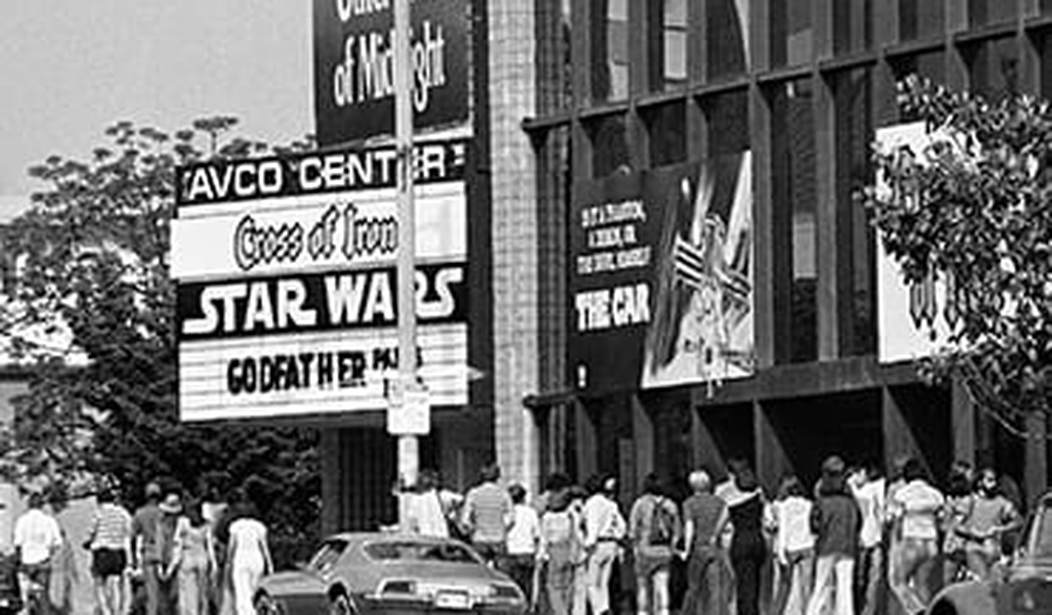With Hollywood licking its wounds after a horrendous summer at the American box office, it’s worth flashing back to another annus horribilis in the industry – 1971, when movie attendance reached an all-time low:
In his roundup, Canby remarked that it seemed possible for a film to perform well on America’s coasts and yet die in its heartland, pointing out that most of the stylish alternative pictures made in the wake of Easy Rider, such as the James Taylor film Two-Lane Blacktop and Drive, He Said, had actually flopped. The movie industry had looked at the grosses, written off its flirtation with the hippies, and gone back to making movies that reflected the concerns of middle-aged Americans. It would be the Christmas of Fiddler on the Roof, Diamonds Are Forever, and Willie Wonka & the Chocolate Factory.
In 1971 cinema attendance was at an all-time low. From $78 million a week in 1946, admissions had slumped to less than $16 million in 1971. The studios were hemorrhaging cash.
The movie industry was at a crossroads in the early 1970s. The industry had only recently dropped the Hays Code, which was Hollywood’s attempt at self-censorship, which had begun during the New Deal 1930s, in fear of government-mandated censorship. Its demise in 1968 resulted in a series of films in which violence, graphic sex, graphic language, and in the case of Easy Rider, graphically bad hippie grooming and hygiene. These films – some of which are revered now as classics – had alienated many non-coastal elite moviegoers, who wondered what happened to the lush, ingratiating big budget films of just a few years prior, such as the Sound of Music and Dr. Zhivago.
But as Rob Long has mentioned a few times in his academic lectures, and I believe once or twice in the Ricochet “GLoP” podcasts, there was another factor as well. For a variety of reasons, after World War II, an increasing number of Americans fled big cities for the suburbs, but cinema construction in the hinterlands had not caught up to the urban outflow in the 1960s and early 1970s. By the 1970s, rising crime had made family trips to the big city just to see a movie a less than appealing proposition, especially given the content to choose from. (“Honey, should we take kids to see A Clockwork Orange, or Last Tango in Paris?”) Once a sufficient number of multiplex theaters were built in the suburbs, and once directors such as Steven Spielberg and George Lucas began creating family-friendly content aimed at suburban audiences, movie theater attendance began to skyrocket again. (It was no coincidence that most of the movies either directed by Spielberg or produced by him in the mid-to-late 1970s and ‘80s were set in bucolic Levittown-style settings.)
All of the preceding though, was before the movie budget arms race had gone completely into overdrive, beginning, arguably, with James Cameron’s Terminator 2 sequel and Titanic. Movies with ginormous budgets need as many safety valves as possible to reduce their risk, which means sequels and franchises — plus the overseas markets. Aiming at this marketplace means a dumbing down of movies, replacing interesting and sophisticated language with numbing CGI passages, and in the case of the Chinese market, it means censorship.
Hollywood was able to learn from its mistakes in the late 1960s and early 1970s, and had quite a run once again producing audience-pleasing movies from the mid-1970s until the industry once again lost its way, beginning with the massive cognitive dissonance that 9/11 caused the left in general. Coupled with the left’s ever-increasing obsession with identity politics, which in recent years led to disastrous decisions such as Sony greenlighting “Lady Ghostbusters” and its suicidal marketing campaign. The Twitter storm that “Lady Ghostbusters” launched, followed by the industry’s anti-Trump meltdown this year, pits Hollywood against millions of their potential customers. This doesn’t sound like a recipe for recovery any time soon. But as someone who used to enjoy going to the movies, I’d be happy to wrong.










Join the conversation as a VIP Member